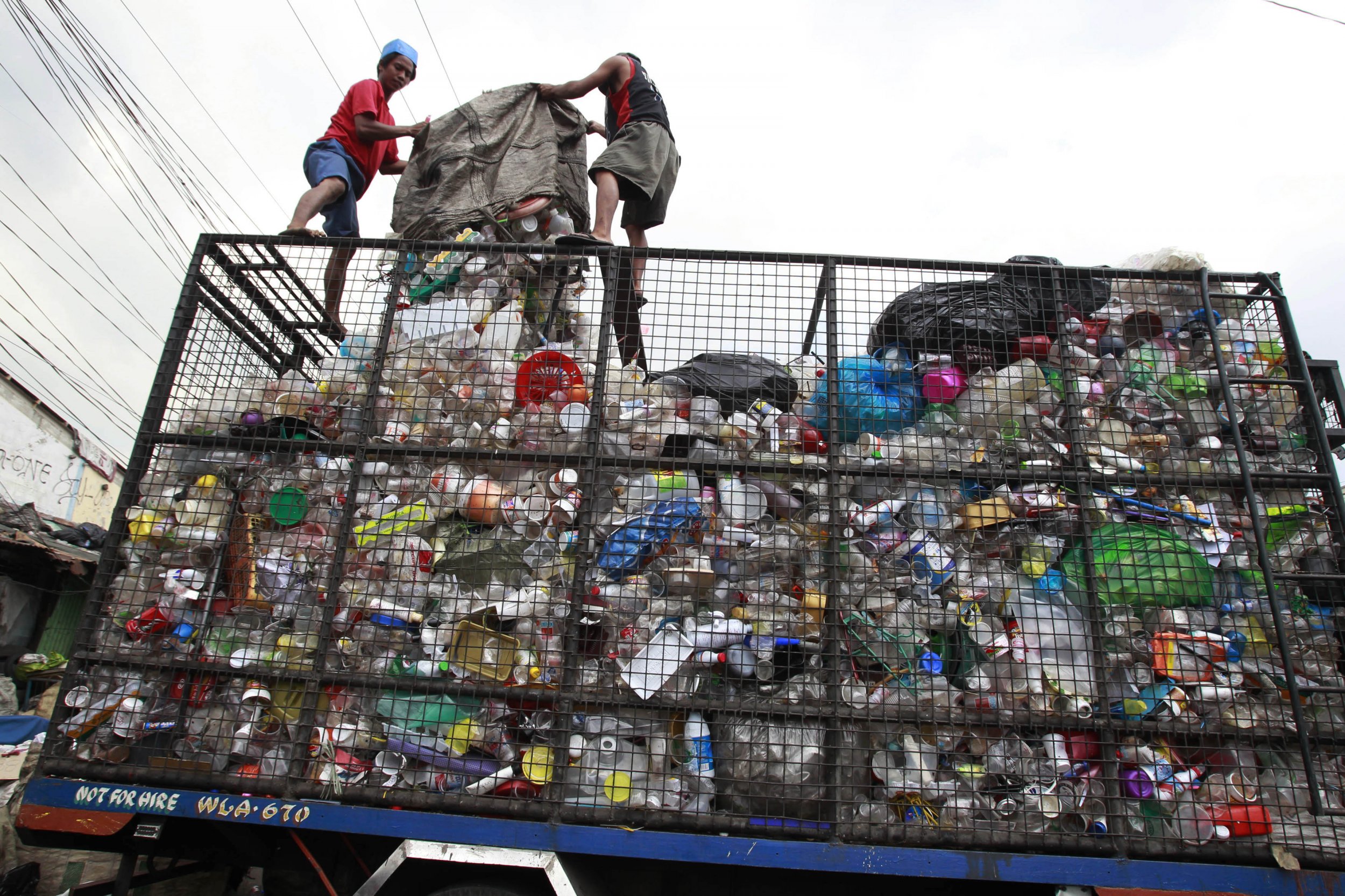
In the classic '60s film The Graduate, a family friend gives the protagonist an iconic piece of advice. "One word... plastics. There's a great future in plastics."
That advice couldn't have been more prescient. Though the world hadn't seen so much as a plastic bag prior to about 1950, it is now awash in them. For the first time, scientists have calculated how much plastic humans have produced throughout history and came up with a staggering figure: more than 9 billion tons (or 8.3 billion metric tons).
The estimate comes from a study published July 19 in the journal Science Advances, which also shows plastics production has grown at a compound annual growth rate of 8.4 percent since 1950, more than 2.5 times the rise in the global gross domestic product. In 1950, just 2 million tons of plastics were made worldwide, but by 2015, humans were churning out more than 400 million tons. Incredibly, half of the plastic that exists was made in the past 13 years. Quite a future in plastics, indeed.
A total of 9 billion tons is difficult to picture. By comparison, that's approximately 25,000 times the weight of the Empire State Building, or 80 million blue whales. Roland Geyer, an associate professor at the University of California, Santa Barbara, and the study's first author, also calculated that if you spread out 9 billion tons of plastic at an ankle-deep level, it would take up an area the size of Argentina—or nearly four times the size of Texas.
Most of this plastic ends up in dumps and the great outdoors. Compared with other mass-produced substances, plastic is typically used once or for a brief time and then thrown away. To date, humans have junked 7 billion tons of plastic waste, only 9 percent of which has been recycled. A total of 12 percent has been incinerated, and 79 percent ended up in landfills or the environment, particularly the ocean. At the current rate, humans will produce 13 billion tons of plastic waste by 2050.
"Humankind is making an incredible amount of plastics, even more than we thought it would be, and it keeps increasing," Geyer says. "And we're not very good at dealing with the waste."
The study analyzed the production of all plastics but focused on the most common resins, including polyethylene, polypropylene, polystyrene, polyvinylchloride, polyethylene and terephthalate. The vast majority of plastics come from hydrocarbons such as petroleum and natural gas.
"By illustrating how much plastic we have produced over time and how little of this is currently recycled or incinerated, the authors provide a much-needed baseline for the problem at hand: the challenge of plastics accumulating in nature and potentially disrupting natural ecosystems," says Barbara Reck, a senior research scientist at Yale who wasn't involved in the study. Her colleague Tom Graedel, also at Yale, adds that "we can best limit their impact by doing a much better job of collection and reuse." But that is difficult, given the current political and economic situation, in which virgin plastics are cheaper and recycling and reuse initiatives receive little support.
Many of the figures around plastic production boggle the mind. For example, more than 480 billion plastic drinking bottles were sold in 2016 worldwide, an increase from 300 billion a decade ago.
Studies keep finding more and more plastic in freshwater sources and the ocean. For example, 4 million to 13 million tons of plastic were estimated to enter the ocean in 2010 alone, and that number has almost certainly gone up. Another study suggested there were 270,000 tons of plastic floating on the ocean's surface and much more on the seafloor.
Given that the raw materials for plastics make up only a small percentage of globally produced hydrocarbons, there is "no chance" we'll run out of plastic fodder any time soon. "If we wanted to, we could easily cover the Earth several times over in plastics," Geyer says.
Uncommon Knowledge
Newsweek is committed to challenging conventional wisdom and finding connections in the search for common ground.
Newsweek is committed to challenging conventional wisdom and finding connections in the search for common ground.
About the writer
Douglas Main is a journalist who lives in New York City and whose writing has appeared in the New York ... Read more
To read how Newsweek uses AI as a newsroom tool, Click here.








